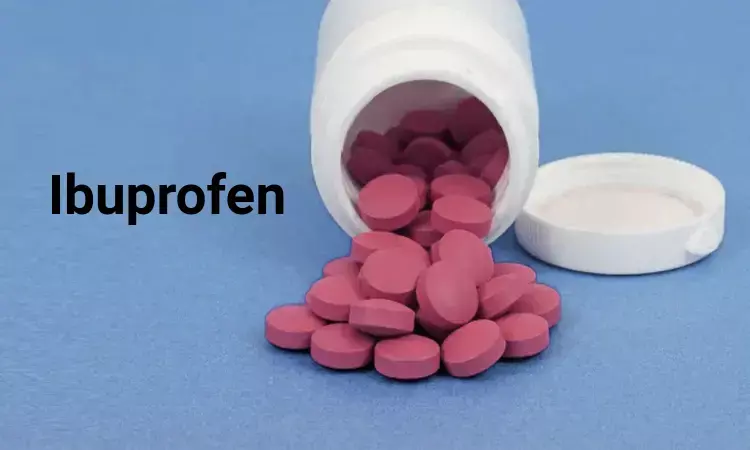- Home
- Medical news & Guidelines
- Anesthesiology
- Cardiology and CTVS
- Critical Care
- Dentistry
- Dermatology
- Diabetes and Endocrinology
- ENT
- Gastroenterology
- Medicine
- Nephrology
- Neurology
- Obstretics-Gynaecology
- Oncology
- Ophthalmology
- Orthopaedics
- Pediatrics-Neonatology
- Psychiatry
- Pulmonology
- Radiology
- Surgery
- Urology
- Laboratory Medicine
- Diet
- Nursing
- Paramedical
- Physiotherapy
- Health news
- Fact Check
- Bone Health Fact Check
- Brain Health Fact Check
- Cancer Related Fact Check
- Child Care Fact Check
- Dental and oral health fact check
- Diabetes and metabolic health fact check
- Diet and Nutrition Fact Check
- Eye and ENT Care Fact Check
- Fitness fact check
- Gut health fact check
- Heart health fact check
- Kidney health fact check
- Medical education fact check
- Men's health fact check
- Respiratory fact check
- Skin and hair care fact check
- Vaccine and Immunization fact check
- Women's health fact check
- AYUSH
- State News
- Andaman and Nicobar Islands
- Andhra Pradesh
- Arunachal Pradesh
- Assam
- Bihar
- Chandigarh
- Chattisgarh
- Dadra and Nagar Haveli
- Daman and Diu
- Delhi
- Goa
- Gujarat
- Haryana
- Himachal Pradesh
- Jammu & Kashmir
- Jharkhand
- Karnataka
- Kerala
- Ladakh
- Lakshadweep
- Madhya Pradesh
- Maharashtra
- Manipur
- Meghalaya
- Mizoram
- Nagaland
- Odisha
- Puducherry
- Punjab
- Rajasthan
- Sikkim
- Tamil Nadu
- Telangana
- Tripura
- Uttar Pradesh
- Uttrakhand
- West Bengal
- Medical Education
- Industry
Ibuprofen may increase risk of hospital-acquired AKI in hospitalized children: JAMA

Researchers have recently observed that Ibuprofen is widely used and is associated with a significantly increased risk of hospital-acquired AKI in hospitalized children particularly children with CKD, of older age, or in need of intensive care.
The study is published in the JAMA Open Network.
Ibuprofen is widely used in children worldwide, especially in those with cancer, fever, or trauma. However, large and high-quality studies of the association between ibuprofen and acute kidney injury (AKI) in children have been lacking.
Therefore, Licong Su and colleagues from the Division of Nephrology, National Clinical Research Center for Kidney Disease, State Key Laboratory of Organ Failure Research, Nanfang Hospital, Southern Medical University, Guangzhou, China conducted this cohort study to examine the association between the use of ibuprofen and the risk of hospital-acquired AKI in hospitalized children in China.
The authors analyzed the cohort of the Epidemiology of AKI in Chinese Hospitalized Patients (EACH) study, a large, multicenter retrospective study of 3 044 023 patients who were admitted to 1 of 25 academic medical centers in China. Patient-level data were obtained from the electronic health record system of the participating centers. Hospitalized children aged 1 month to 18 years who had prescriptions and a certain number of serum creatinine (SCr) tests were included.
Children with end-stage renal disease, community-acquired AKI, low baseline SCr level (<10 μmol/L), high standardized baseline SCr level (>4 times the sex- and age-specific reference value), or missing diagnosis code were excluded. Data analysis was conducted.
Baseline SCr level was calculated for each patient as the mean of all available SCr values between the 30 days prior to admission and the first SCr testing within the first 3 days of hospitalization. Acute kidney injury was defined as an increase in SCr level of 26.5 μmol/L or higher within 48 hours or by 50% or more over the baseline value
The results showed that-
a. Among the 50 420 children (mean [SD] age, 5.0 [5.2] years; 30 640 boys [60.8%]) included in this study, 5526 (11.0%) used ibuprofen and 3476 (6.9%) developed hospital-acquired AKI during hospitalization.
b. Ibuprofen use was associated with a statistically significantly increased risk of hospital-acquired AKI (hazard ratio [HR], 1.23; 95% CI, 1.14-1.34) after adjusting for confounders. Ibuprofen use was associated with a greater hazard in children who had chronic kidney disease vs those without (HR, 2.31 [95% CI, 1.73-3.10] vs 1.19 [95% CI, 1.09-1.29]), required intensive care vs those without this need (HR, 1.47 [95% CI, 1.24-1.75] vs 1.18 [95% CI, 1.07-1.29]), or were older vs younger (>10 years and >1 year to 10 years vs 1 month to 1 year) (HR, 1.64 [95% CI, 1.32-2.05]; 1.36 [95% CI, 1.23-1.52] vs 0.99 [95% CI, 0.86-1.13]). c. Dose-response analysis suggested that the association of ibuprofen with the risk of hospital-acquired AKI was dose-dependent.
Therefore, the authors concluded that "ibuprofen was widely used and associated with an increased risk of hospital-acquired AKI in hospitalized children in China. The judicious use of ibuprofen and close monitoring of kidney function in children are needed."
Dr. Nandita Mohan is a practicing pediatric dentist with more than 5 years of clinical work experience. Along with this, she is equally interested in keeping herself up to date about the latest developments in the field of medicine and dentistry which is the driving force for her to be in association with Medical Dialogues. She also has her name attached with many publications; both national and international. She has pursued her BDS from Rajiv Gandhi University of Health Sciences, Bangalore and later went to enter her dream specialty (MDS) in the Department of Pedodontics and Preventive Dentistry from Pt. B.D. Sharma University of Health Sciences. Through all the years of experience, her core interest in learning something new has never stopped. She can be contacted at editorial@medicaldialogues.in. Contact no. 011-43720751
Dr Kamal Kant Kohli-MBBS, DTCD- a chest specialist with more than 30 years of practice and a flair for writing clinical articles, Dr Kamal Kant Kohli joined Medical Dialogues as a Chief Editor of Medical News. Besides writing articles, as an editor, he proofreads and verifies all the medical content published on Medical Dialogues including those coming from journals, studies,medical conferences,guidelines etc. Email: drkohli@medicaldialogues.in. Contact no. 011-43720751


